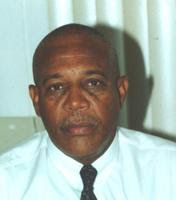Sillerman’s dream playground of a Greg Norman golf course and luxury hotel project in
Watering of the golf course first stopped in January. It restarted in March for a few weeks. It has now been stopped for the past two months. This is the dry season. No rain is falling. The grass on the golf course is dying for lack of water.
The tragedy of our abandoned golf course and hotel project reminds me now of nothing more than the pyramids of the Sun and the Moon at
Just a week ago, I was reading an article in the New York Times about a certain Bobby Ginn. His 1,900-acre project, called Bella Collina, was designed to hold 800 homes and a golf course. Today, only 48 houses dot the landscape, and just three are occupied. It is a ghost town. So is Tesoro. This is another golf resort opened by Mr Ginn near Port St Lucie. There just 150 houses sit on 900 waiting lots. A third project of his is the Conservatory in Palm Cost. It is even more barren. Only 5 of a total of 340 lots have been constructed. The banks are foreclosing. His properties are being sold off. Most of his projects were funded with loans organized by the same Credit Suisse.
Someone has now sent me the following photographs of the abandoned hotel and golf course at Flag in
The fairways turning brown
The ponds drying up
Weeds growing in the sand traps
The greens turning brown
A small spot of green around one of the sprinklers
The river has run dry
Soon the forest will have reclaimed the ruins
Anguilla's very own pyramids?
These villas look almost complete
These villas look like they have a long way to go
The sense of desolation and abandonment is overwhelming
Even the heavy equipment appears to have bush growing up around it
Sillerman meant well for
If Sillerman’s money had been better managed by those in whose hands he placed it, no one would be pointing fingers at him now. He was badly served by his managers and his employees. He is taking the blame for everything. Even for not repatriating the Chinese. They worked for Ashtrom, not Sillerman. When Ashtrom posted cash deposits to guarantee their air fares, government spent it on foolishness. Now, when they are not fighting among themselves in their squalid quarters, the Chinese compete with Anguillians for scarce construction work.
So far, it is reported that US$750 million, three quarters of a billion dollars, has been invested in this project. Credit Suisse has refused to inject the remaining $200 million needed to complete the project. They say they have been burned by these expensive golf course projects. I am not surprised. Sillerman is blamed for not coming up with the money personally. Now, that is unfair.
Other than being too trusting, and not knowing how history has treated wealthy trusting investors in
The real victims of this fiasco are Sillerman and the people of
Related posts:






























